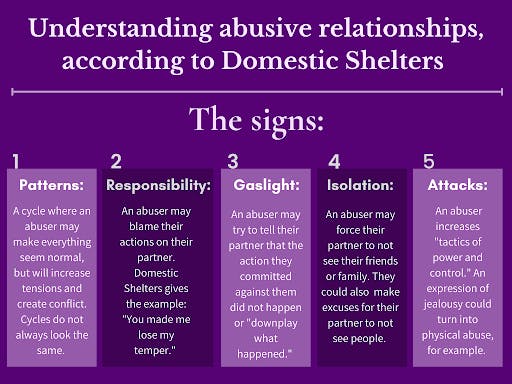Relationships in college, both platonic and romantic, are not always meant to last, and students’ ability to recognize when partnerships and friendships are not serving them holistically is valuable to their well-being.
Unhealthy relationships are easy to come by in any stage of life, but people’s experiences in college often include time spent in unfavorable partnerships or groups.
Emilia Lewis, a sophomore studying nursing, said that when she was a freshman she was balancing a relationship with her boyfriend, who also attends Ohio University, and another relationship with two close friends. The three friends did everything together, and Lewis said her friends became upset when she brought her boyfriend along to an event, which caused the friendship to end.
“So, I mean, that was it,” Lewis said. “And tried reaching out and having to talk about it and nothing changed.”
The situation made Lewis rethink what relationships look like. Although it was difficult to look forward, Lewis knew what was best for her. The condition of the friendship allowed Lewis to let go without a lot of conflict, but some students are in relationships where leaving may put them in dangerous or unsafe circumstances.
There are extreme examples of unhealthy relationships such as those that are or become abusive. The Partnership Against Domestic Violence reported that 21% of college students have experienced dating violence by their current partners and 32% of students experienced dating violence by former partners.
There are differences between relationships that do not fulfill people and relationships that are physically, emotionally or verbally abusive. According to the Domestic Shelters, “it’s important to recognize that an unhealthy relationship has the potential to escalate into abuse, and spotting warning signs of an abuser early is vital to our safety.”
Toxic relationships can develop into abusive ones, according to Domestic Shelters, and listening to one’s instincts and feelings around an unhealthy partner can indicate the relationship is becoming abusive. The signs to look out for include: abusive patterns, someone avoiding responsibility, gaslighting, escalating attacks and isolation, the Domestic Shelters listed.

If students are in abusive relationships and want to seek help and resources, they can call the Ohio Domestic Violence Network at 1-800-934-9840 to find programs or services or the Survivor Advocacy Outreach Program at 740-591-4266 to talk to trained specialists in southeastern Ohio.
Students find themselves experiencing all types of relationships at OU, and some just make them feel drained and as if they are being pulled in all different directions. Many relationships are neither toxic nor abusive, but simply situations where the relationship is not positive for one or both people involved.
Brooklyn Bucheit, a freshman studying sociology and criminology, said she had a conflict with a former roommate who eventually moved out. Bucheit also said the situation worked out for the best for her and her other roommates. For those working through similar situations now or in the future, Bucheit recommends working through the conflict by communicating openly.
“I think just talking about it and understanding the situation,” Bucheit said. “Having an outlet in general is important.”
Sometimes people can get information about how someone may act even before a relationship develops. When meeting new people, Emily Rose, a freshman studying pre-nursing, said it is important for her to acknowledge their body language.
“If I’m ever talking to someone and then … even if it’s just like their phone lights up, they’ll look over (at their phone) and I’m just like, ‘I’m talking to you,’” Rose said.
People have their various methods of determining whether they want to connect with another person or not. Sometimes these methods develop because of past experiences in relationships, and Lewis said if the people around someone are not healthily adding to areas in their life, then it is OK to “do your own thing.”
The people who other students meet in college can become life-long friends or partners, but also potentially people who create unhealthy situations in their lives. Students such as Lewis and Bucheit who have had experiences with people who can no longer fit in their lives show the value in choosing to be around people, or not to be, who prove they care about their own well-being and that of others.
“I just think you’re in a time where … you’re growing up, you are on your own,” Lewis said. “So at this point, it’s like you have to take care of yourself.”






